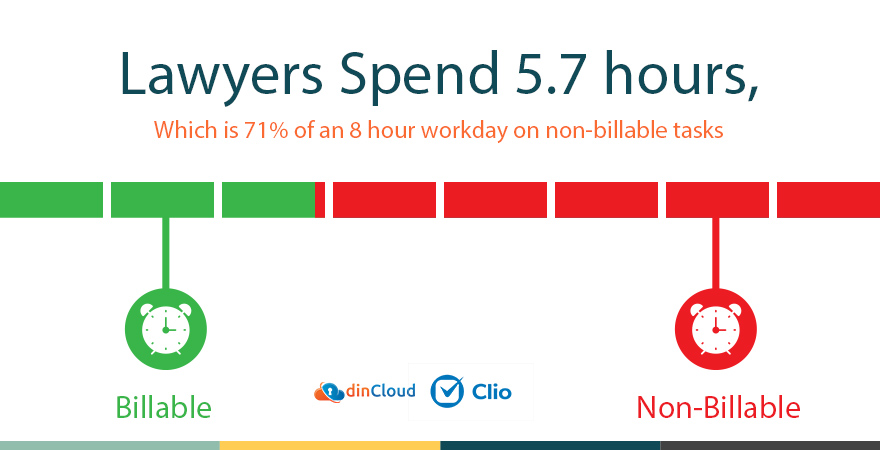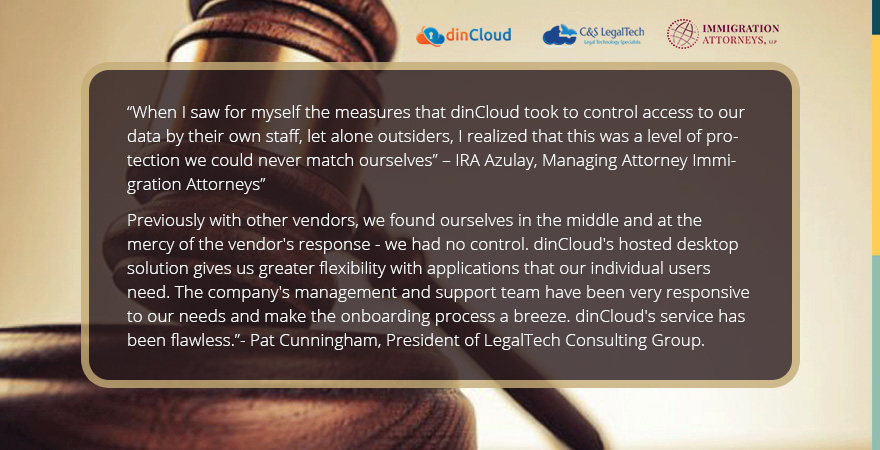Going through the 2017 legal trends report, we found some interesting insights that we’d like to share with you.
Did you know that lawyers are spending only 2.3 hours, which is 29% of an 8 hour workday on billable tasks? Taking a deeper dive after factoring in realization and collection rates, we found out that legal firms only collect an average of 1.6 hours of billable time a day. What happens with the rest of the hours?
The report found after surveying 3,000 legal professionals that 48% of their time is spent on the following tasks: configuring technology, office administration, generating and sending bills, and collections tasks. This significantly impacts the professional’s ability to work on billable tasks. With so much non-billable time being dedicated to business development (33%), getting new clients is becoming a constant concern for law firms.

The question, is how can the legal industry address these challenges while focusing on their growth initiatives in 2018?
Cloud Technology for the Legal Industry
You might be surprised to hear that cloud technology, like Desktop-as-a-Service or DaaS, is having an impact on the legal industry. Cloud technology is among the leading technologies driving digital transformation. Here’s a recap of what we shared with you in 2017:
- Recent studies conducted by Lexis Nexis reports 41% of the legal community is of the opinion that their confidential data stored in the cloud is safe and 72.4% of the legal firms are in favor of cloud adoption
- American Bar Association survey report shows cloud usage grew more than 20% in the last couple of years

Innovative firms in the legal industry can leverage the cloud and transform the way they interact and collaborate with their clients and colleagues. Cloud not only meets the legal industry’s strict security and data privacy requirements, but it can also help achieve efficiency, mobility, flexibility, and cost savings.
Increased Efficiency
Cloud technology helps legal institutions expedite their cases and makes client management easier as it provides access to work from anywhere, whether it be at the office, home, or while traveling. Cloud first initiatives will help streamline billing and invoicing and save a significant amount of time.
Desktop as a Service (DaaS) helps with online document management that enables you to access your files and share them with your colleagues and clients. Legal Institutions will enjoy greater mobility and freedom of access by hosting their workspace in the cloud.
Cost Savings
By moving IT infrastructure to the Cloud, the legal industry can slash overhead costs as there would be no need for physical servers, software, annual licensing fees, and those hefty annual upgrades.
Security
Cloud technology is also secure. You can back up and save confidential data on servers across different geographical regions. When institutions utilize a DaaS solution, all data resides on servers and not the actual device, providing an additional layer of security.
Time to try a Secure Hosted Cloud
There are many benefits of migrating to a secure hosted private cloud solution with dinCloud. But don’t just take our word for it. Below are some testimonials from legal practices just like yours who have made the switch to DaaS:

At dinCloud, we help Legal institutions leverage the cloud. If you would like additional information, or to discuss your institution’s environment, contact us via this form.


